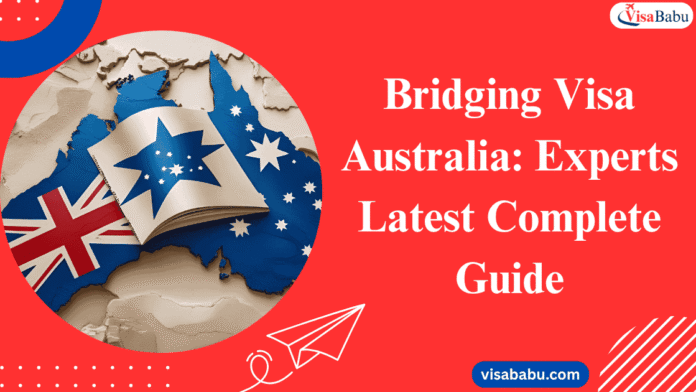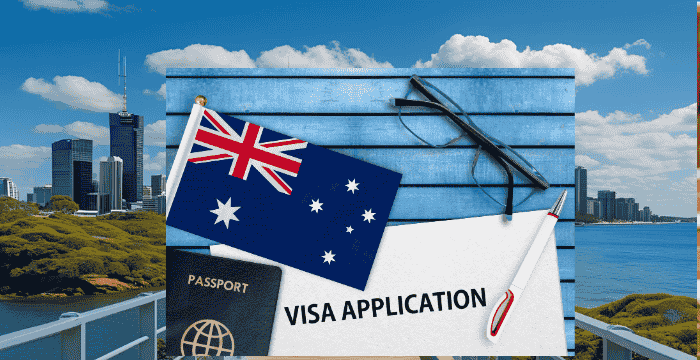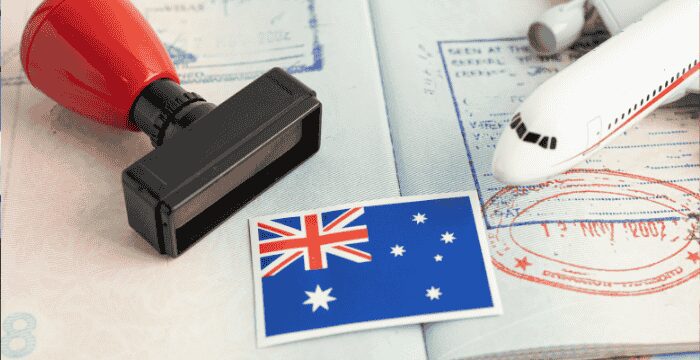Are you going through Australia’s visa process and concerned about your legal status while you wait for your next visa? Read here to understand how bridging visas offer security, what you can and cannot do and how to avoid common mistakes—with the latest information from 2025.
What do Bridging Visas do in Australia (Subclass 010) In 2025?
A bridging visa Australia is a temporary visa that lets you remain lawfully in the country while your application for a new substantive visa is processed or while you make arrangements to depart. If you’re asking, what is a bridging visa Australia, it’s essentially a “bridge” between your previous visa and your future visa status, ensuring you don’t become unlawful during the transition period. Those going through a visa change, such as from one class of visa to another, need this visa to protect their legal standing and avoid being in Australia without a proper visa.
Every bridging visa Australia has its own rules and rights based on the reason for your application.
According to government data from 2025, over 200,000 people were living legally in Australia under bridging visas during processing.
Types of Bridging Visa Subclasses Available to Individuals in Australia 2025
There are a number of bridging visas in Australia, and each is meant for a particular situation. Let me provide a quick list so you can see the main differences:
| Bridging Visa Type | Who It’s For | Work Rights | Travel Rights | Typical Use Case |
| Bridging Visa A (BVA) | Applicants with a valid substantive visa applying onshore | Usually inherits the previous visa’s rights | No | Waiting for the new visa decision |
| Bridging Visa B (BVB) | Those needing to travel overseas temporarily | Usually inherits the previous visa’s rights | Yes (limited period) | Urgent travel during processing |
| Bridging Visa C (BVC) | Applicants without a substantive visa at application | Must apply separately, usually financial hardship | No | Visa expired, new application in process |
| Bridging Visa D (BVD) | Individuals whose visa has expired, seeking time to regularise their status | No | No | Short-term stay to resolve status |
| Bridging Visa E (BVE) | Those awaiting an immigration decision or arranging departure after becoming undocumented | Must apply separately, usually financial hardship | No | Finalising immigration matters or departure |
Because bridging visas are customised, you should make sure to select the one that matches your situation79.
Bridging Visa A (BVA)
If you have a valid substantive visa and apply for another onshore visa, you are given a Bridging Visa A (BVA) automatically. If your visa is pending, this one lets you stay in Australia lawfully until the outcome is decided. Despite all these advantages, you can’t travel outside Australia on a BVA—leaving the country would mean your BVA is terminated, and you might not be allowed back in.
| Feature | Details |
| Validity | Until a substantive visa decision or withdrawal |
| Work Rights | Usually inherits rights from the previous visa |
| Travel Rights | Not allowed; leaving cancels BVA |
If you’re wondering about bridging visa australia validity or asking, “can you work in Australia on a bridging visa?” BVA typically carries over the work and study rights from your previous visa. Read the instructions in your grant letter before accepting the grant.
Your Bridging Visa B (BVB)
Bridge Visa B Australia
This visa is the only kind that lets you travel in and out of Australia before your next visa begins, usually within three months. It is important for applicants who have to travel out of the country for family emergencies or work during the time their substantive visa is being processed.
| Feature | Details |
| Validity | Until a substantive visa decision or withdrawal, the travel period is limited |
| Work Rights | Usually inherits rights from the previous visa |
| Travel Rights | Permitted during a specified period |
Application Process:
- Go to ImmiAccount and fill out your form online.
- Give the reasons for your trip (for example, medical, family or business).
- Send in supporting materials (e.g., why you are planning to travel, your travel plan)
- Ask your TAFE for permission before you travel.
BV services have become popular in 2025 because emergencies in families and more business travel have increased.
Bridging Visa C
Bridging C Visa Australia
The Bridging Visa C (BVC) is aimed at people who don’t have a primary visa type when they want to apply for a new one. It lets people stay legally while they wait for their case to be decided. But having the right to work doesn’t happen automatically; you must apply and often present proof of your financial troubles.
| Feature | Details |
| Validity | Until a substantive visa decision or withdrawal |
| Work Rights | Must apply separately (financial hardship required) |
| Travel Rights | Not allowed; leaving cancels BVC |
Being eligible for BVC requires very specific conditions, and the visa doesn’t allow you to leave the country. If you seek to work, you must show documents such as bank statements that prove you are facing financial problems.
Partner Bridging Visa Australia
Most applicants for a partner visa (subclass 820/801) get a bridging visa to help them stay in Australia during the processing of their case. How many hours you can work each week on a bridging visa depends on your previous visa. Many people are able to attend school and hold jobs without being interrupted, though they are not able to get government subsidies.
| Feature | Details |
| Validity | Until the decision on a partner visa has been made or withdrawn |
| Work Rights | Gets the rights included in the previous visa |
| Family Inclusion | Those who are included on the application get the same bridging visa |
Without partner bridging visas, couples and families might not be able to stay together lawfully as their application takes a long time.
Bridging Visa Australia Validity and Conditions in 2025
Bridging visas are valid as long as your main visa application has not been decided or approved. Usually, your bridging visa will only end when a decision on your new visa is made, you travel from Australia, or a fresh bridging visa is granted.
Below is the latest Summarise table:
| Visa Type | When It Starts | When It Ends | Key Conditions |
| BVA | When the substantive visa expires | New visa decision, departure, or new bridging visa | No travel, work rights as per the previous visa |
| BVB | When the substantive visa expires | New visa decision, end of travel period, or new bridging visa | Travel is allowed during the travel period |
| BVC | On grant | New visa decision, departure, or new bridging visa | No travel, work rights only if approved |
| BVD | On grant | Short period to regularise status | No work, no travel |
| BVE | On grant | Immigration decision, departure, or new bridging visa | No travel, work rights only if approved |
There are particular rules for work, travel and study for each bridging visa. Every time, check your visa grant letter and look up your information on the Department’s VEVO system to know your conditions.
Is Working in Australia on a Bridging Visa Possible in 2025?
If you’re asking, can you work in Australia on a bridging visa? The answer depends on the type of bridging visa you hold and the conditions attached. Let’s take a closer look:
| Visa Type | Work Rights |
| BVA | Usually inherits from the previous visa |
| BVB | Usually inherits from the previous visa |
| BVC | Must apply separately (financial hardship required) |
| BVD | Not permitted |
| BVE | Must apply separately (financial hardship required) |
Ways to find out about and use your work rights:
- Look over your visa grant letter to find the conditions of your work.
- If you do not see any work rights, either apply online using ImmiAccount or send Form 1005.
- Including your bank statements and the details of your living costs is necessary.
- You need to have nomination approval for employer-sponsored visas.
Managers should frequently check both the status and the rules of employee visas to prevent any problems.
Latest Steps for Applying for a Bridging Visa Australia in 2025
Even though the process for bridging visas in Australia is simple, it may be different for each one. We’ll go through the process step by step next.
| Step | Action |
| 1 | Identify which bridging visa suits your situation (A, B, C, D, or E) |
| 2 | Gather necessary documents: ID, evidence of substantive visa application, financial proof (if applying for work rights), travel documents (for BVB) |
| 3 | Log in or create an ImmiAccount on the Department of Home Affairs website |
| 4 | Select the appropriate bridging visa application form |
| 5 | Fill out the form and upload supporting documents |
| 6 | Pay any applicable fees online |
| 7 | Review and submit your application |
| 8 | Receive confirmation email and track status via ImmiAccount |
Be certain to check all the paperwork to avoid your application being delayed. The time it takes to process depends on the agency: BVA and BVB are done quickly, while BVC, BVD and BVE need more time.
Bridging Visa Mistakes to Avoid: Latest Tips for a Smooth Application Process in 2025
Applying for a bridging visa can be worrying, and making errors can result in losing your legal status. Listed below are the most frequent mistakes and how to avoid them:
| Mistake | How to Avoid |
| Applying for the wrong visa | Confirm your eligibility and visa type before applying |
| Missing deadlines | Set reminders and submit applications early |
| Incomplete or incorrect documents | Use a checklist and double-check all uploads |
| Misunderstanding visa conditions | Read your grant letter and check VEVO regularly |
| Assuming work or travel rights | Always confirm conditions before making plans |
Partner visa applicants sometimes forget to bring all necessary evidence, provide different answers in the application or fail to give adequate proof of their relationship. Arrange your evidence neatly and be certain that all needed forms are filled out properly.
Bridging Visa Australia for Partners and Families in 2025
With a bridging visa, families and partners are allowed to live together legally until a decision is made on their main visas. Partner bridging visa Australia applicants, as well as their included family members, receive the same bridging visa with identical conditions. Keeping the family unit together buys extra time for a decision to be made.
| Scenario | Application Type | Family Inclusion | Bridging Visa Outcome |
| Partner visa application | Partner Visa (e.g. Subclass 820/801) | Partner + Dependents | All included receive the same type of Bridging Visa |
| Other substantive visa applications | Other substantive visas | Included family members | All included receive the same type of Bridging Visa |
Conclusion
Understanding bridging visa Australia is essential for anyone navigating the country’s visa system. By finding the right bridging visa, applying the proper way and sticking to all the rules, you’ll be protected while changing visas. Keep yourself up to date, check your qualifications twice and rely on official guidance to ensure you do not make mistakes.
Frequently Asked Questions
Q1: What is a bridging visa in Australia?
Ans. It’s a permission that gives you lawful residence until your visa is approved or before you leave.
Q2: Is it possible to take on employment with a bridging visa?
The kind of visa and its requirements will determine your work rights. Pets from BVA and BVB usually keep rights from before adoption; the right for pets in BVC and BVE comes from a new application due to financial challenges.
Q3. Can I go abroad while I am on a bridging visa?
Ans. International travel is only possible with BVB. Usually, leaving Australia on bridging visas other than subclass 489 results in your visa being cancelled.
Q4: How much time is needed to process a bridging visa?
It usually takes just a few days to weeks for BVA and BVB to be processed, but BVC, BVD and BVE may take longer.
Q5. What happens if my application is denied or I pull it out?
It is possible for your bridging visa to end. If you’re not sure, check your status and talk to someone who can help.








![Software Engineer Jobs in Pune: Latest Openings [2025] Software Engineer Jobs in Pune Latest Openings [2025]- VisaBabu.png](https://visababu.com/wp-content/uploads/2025/07/Software-Engineer-Jobs-in-Pune-Latest-Openings-2025-VisaBabu-218x150.png)